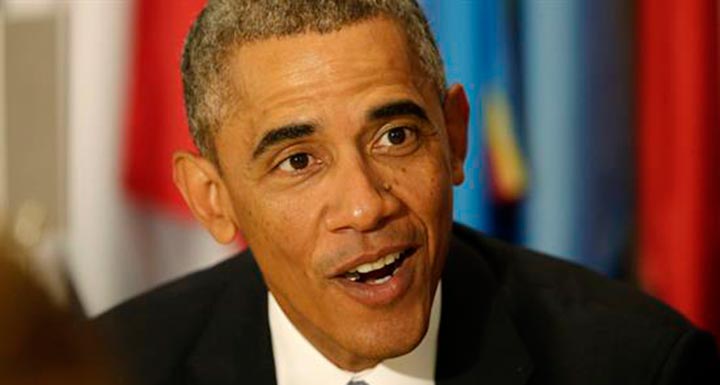
Cuba, the U.S. and Obama’s State of the Union
If President Obama talks about his Cuba policy on Tuesday night, his State of the Union Address could be unlike any our nation has experienced.
Earlier presidents were colonizers; like William McKinley and Teddy Roosevelt, who used their State of the Union messages to justify intervening in Cuba, rewriting it’s Constitution, controlling its internal affairs, and grabbing Guantanamo Bay as a coaling station for the Navy.
In more recent times, Presidents Kennedy and Reagan spoke as anticommunists. With Kennedy asserting the Cold War right of the United States to prevent “Communist domination in this Hemisphere,” and Reagan promising “those who would export terrorism and subversion in the Caribbean and elsewhere, especially Cuba and Libya, we will act with firmness.”
But, the ideas embodied in those speeches lost their resonance long ago. Because his policy is not guided either by Manifest Destiny or the conditions of Cold War, President Obama can re-frame how his State of the Union speech addresses Cuba and the changes his reforms will bring.
His policy re-imagines the role of government.
Because the goal is sending more visitors to the island to exchange ideas with the Cuban people, the Obama policy reduces paperwork barriers to travel, and extracts the bureaucracy from deciding whether U.S. travelers should settle their hotel and bar bills using cash or credit cards.
It is much more practical.
Because the goal is boosting the access of Cubans to information, the policy says that it is no longer necessary to ask the Federal government for a license so travelers can bring thumb drives, laptops, or cellphones to Cuba as give Cubans the gifts of a thumb drive, a cellphone, or a laptop.
It uses common sense.
When the goal is promoting human rights, the Obama policy reached the obvious conclusion that it was the presence of diplomacy — not its absence — that would help persuade Cuba to release 53 political prisoners from its jails, and enable both countries to swap spies and bring Alan Gross back to his family and his home.
It lays the groundwork for the future by bringing more of us into the process.
What Obama has done — which his predecessors didn’t and somehow couldn’t — is to open a considerable amount of political space for actors other than government officials and public servants to do the hard but necessary work of bringing Cuba and the United States closer together.
Many Cuban Americans have labored bravely for decades in a hostile environment in which the expression of moderate views was met by with disapproval — in some cases with force — by bullies and extremists.
By changing the policy, the President has ensured that Cuban American families will be joined by pastors and rabbis, ball players and marine scientists, artists and experts, in conducting the kinds of meaningful exchanges that bring societies together in ways that diplomats (and certainly Beltway Contractors) cannot.
As the coalition expands further to include the business community, farmers, businesses and individuals with legacy claims for compensation for property that was expropriated, and lots of others with reason to work on behalf of an open policy, the momentum favoring reform will increase substantially.
Diplomacy remains essential — as illustrated by the trip that Assistant Secretary of State Roberta Jacobson will undertake next week — for the resumption of diplomatic relations, the opening of our two embassies, and the expression of our disagreements on human rights and political issues, and much more.
We hope the President talks about these changes, as he should, but that he also prepares the public and the Congress for the road ahead.
The two countries and the two publics cannot mend this historically broken relationship overnight. As our friend Rafael Hernandez has written, “the main weakness Cuba needs to overcome is not its lesser physical power, but it’s siege mentality. The United States, on the other hand, needs to overcome its sense of super power arrogance vis-à-vis a small neighbor. Most counterproductive policies on both sides, from the Bay of Pigs fiasco to Cuba’s Internet restrictions, have been the consequence of these weaknesses.”
Even on our best days, this will take time. The instinct to provoke — by hardliners on both sides of the Florida Strait — will remain and even grow more desperate, as the provocateurs increasingly find themselves living in a bygone age. Tuesday night offers the President a unique platform for giving power and voice to the new ways in which Cuba and the United States can engage with and relate to each other respectfully.
If he says these things, it will be the first time in our history a President of the United States has given a State of the Union Address like that.
(From: Huffington Post)

